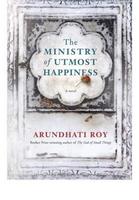Subject

photo credits: Wikimedia Commons
The Kashmir conflict is a territorial conflict over the Kashmir region, primarily between India and Pakistan, and also between China and India in the northeastern portion of the region. The conflict started after the partition of India in 1947 as both India and Pakistan claimed the entirety of the former princely state of Jammu and Kashmir. It is a dispute over the region that escalated into three wars between India and Pakistan and several other armed skirmishes. India controls approximately 55% of the land area of the region that includes Jammu, the Kashmir Valley, most of Ladakh, the Siachen Glacier, and 70% of its population; Pakistan controls approximately 30% of the land area that includes Azad Kashmir and Gilgit-Baltistan; and China controls the remaining 15% of the land area that includes the Aksai Chin region, the mostly uninhabited Trans-Karakoram Tract, and part of the Demchok sector.After the partition of India and a rebellion in the western districts of the state, Pakistani tribal militias invaded Kashmir, leading the Hindu ruler of Jammu and Kashmir to join India. The resulting Indo-Pakistani War ended with a UN-mediated ceasefire along a line that was eventually named the Line of Control. In 1962, China invaded and fought a war with India along the disputed Indo-Chinese border, including in Indian administered-Ladakh, marking their entry to the Kashmir conflict. In 1965, Pakistan attempted to infiltrate Indian-administered Kashmir to precipitate an insurgency there, resulting in another war fought by the two countries over the region. After further fighting during the war of 1971, the Simla Agreement formally established the Line of Control between the territories under Indian and Pakistani control. In 1999, an armed conflict between the two countries broke out again in Kargil with no effect on the status quo.In 1989, an armed insurgency erupted against Indian rule in Indian-administered Kashmir Valley, based on demands for self-determination after years of political disenfranchisement and alienation, with logistical support from Pakistan. Spearheaded by a group seeking creation of an independent state, the insurgency was taken over within the first few years of its outbreak by Pakistan-backed Jihadist groups striving for merger with Pakistan. The militancy continued through the 1990s and early 2000s—by which time it was being driven largely by foreign militants and spread to parts of the adjoining Jammu region—but declined thereafter. The insurgency was actively opposed in Jammu and Ladakh, where it revived long-held demands for autonomy from Kashmiri dominance and greater integration with India. The fighting resulted in tens of thousands of casualties, both combatant and civilian. The militancy also resulted in the exodus of Kashmiri Hindus from the predominantly Muslim Kashmir Valley in the early 1990s. Counterinsurgency by the Indian government was coupled with repression of the local population and increased militarisation of the region, while various insurgent groups engaged in a variety of criminal activity. The 2010s were marked by civil unrest within the Kashmir Valley, fuelled by unyielding militarisation, rights violations, mis-rule and corruption, wherein protesting local youths violently clashed with Indian security forces, with large-scale demonstrations taking place during the 2010 unrest triggered by an allegedly staged encounter, and during the 2016 unrest which ensued after the killing of a young militant from a Jihadist group, who had risen to popularity through social media. Further unrest in the region erupted after the 2019 Pulwama attack.According to scholars, Indian forces have committed many human rights abuses and acts of terror against the Kashmiri civilian population, including extrajudicial killing, rape, torture, and enforced disappearances. According to Amnesty International, no member of the Indian military deployed in Jammu and Kashmir has been tried for human rights violations in a civilian court as of June 2015, although military courts-martial have been held. Amnesty International has also accused the Indian government of refusing to prosecute perpetrators of abuses in the region. Moreover, there have been instances of human rights abuses in Azad Kashmir, including but not limited to political repressions and forced disappearances. Brad Adams, the Asia director at Human Rights Watch said in 2006 "Although 'Azad' means 'free', the residents of Azad Kashmir are anything but free. The Pakistani authorities govern Azad Kashmir with strict controls on basic freedoms". The OHCHR reports on Kashmir released two reports on "the situation of human rights in Indian-Administered Kashmir and Pakistan-Administered Kashmir". Source: Wikipedia (en)
Works about Kashmir conflict 2
Subject - wd:Q1413732

